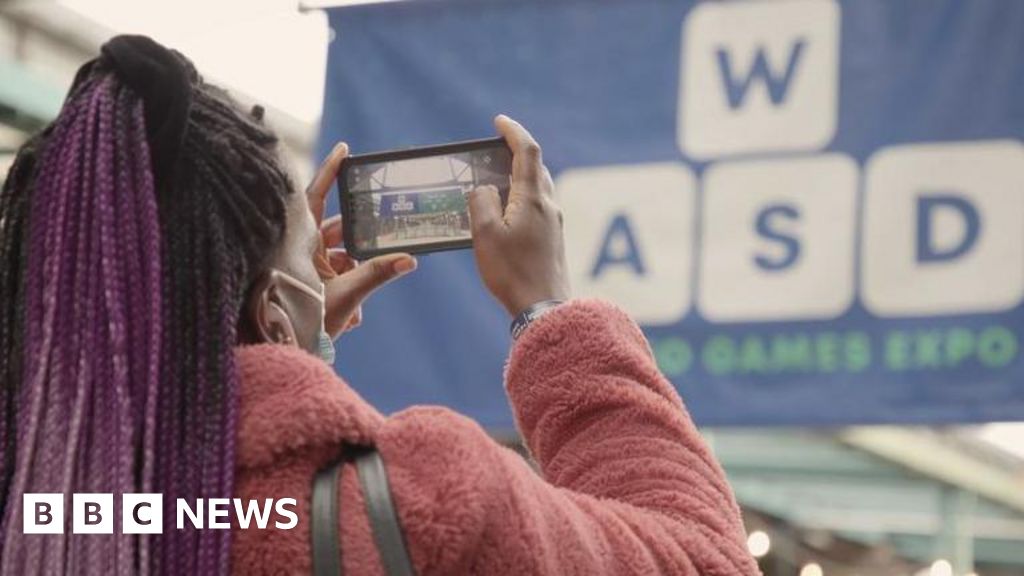ARTICLE AD BOX
Image source, Ubisoft
Image caption,Ubisoft's NFT system will launch in Ghost Recon: Breakpoint first
Game titan Ubisoft has announced its new system to bring NFTs to its in-game cosmetics, starting this week.
Non-fungible tokens have exploded in popularity, and are widely used for digital art collectibles.
Ubisoft's system - called "Digits" - will be offered as in-game cosmetics with one-of-a-kind serial numbers, which can be bought and sold.
Critics argue NFTs are bad for the environment, while offering little benefit over traditional systems.
Ubisoft - famous for games such as the Assassin's Creed, Far Cry and Rainbow Six series - is the most significant game developer and publisher to launch an NFT project yet.
The company claims it has addressed the environmental problems associated with blockchain technology.
Its in-game NFTs will be stored on the Tezos blockchain, which it claims is far more energy-efficient than other options.
But the use of NFTs in gaming remains controversial, with many players and designers believing they are only considered as a way to make money, rather than providing players with any benefit.
How does it work?
Ubisoft's first batch of Digits will launch with "limited editions" - of a fixed number of in-game cosmetics - for the company's game Tom Clancy's Ghost Recon Breakpoint, on Thursday. They can be paid for with crypto-currency, but only in the launch countries of USA, Canada, Spain, France, Germany, Italy, Belgium, Australia and Brazil.
Many games - especially free-to-play ones such as the popular Fortnite or Warzone titles - make a large chunk of their money through selling in-game cosmetic items or "skins" that change the look of characters or items.
Ubisoft is applying the NFT technology to this game mechanic, and calling its overall ecosystem "Quartz".
NFTs are always unique in some way, but in-game cosmetics are identical for every player who gets a copy. Ubisoft's solution is to put a unique serial number on every digital cosmetic.
Image source, Ubisoft
Image caption,Ubisoft's system will ask over-18s to connect a crypto-wallet to use the NFT system
In one example shown by the company, a digital helmet worn by a character appears to have a serial number "stamped in" to the metal in its appearance - a number Ubisoft says will be different for every owner.
That serial number will be visible in-game to other players, and each player can only own one of each "Digit" NFT, Ubisoft said.
These Digits can then be bought and sold with crypto-currency like any other token on the blockchain - even for those who do not own or play Ubisoft's games. The items will also list previous owners in-game, it said.
"With Digits, items are no longer bound to a player's game inventory since they can be put on sale for other eligible players to acquire on third-party platforms outside of the Ubisoft ecosystem," it said.
But it is unlikely the items would ever be able to be used in non-Ubisoft games.
Some NFTs give the original creator a "cut" of the sale every time it changes hands. Ubisoft has not said if it has set up the system in that way.
The company is characterising the entire release as a "large-scale experiment" and says it has been exploring blockchain technology for four years.
What's the problem?
Ubisoft says it is using the Tezos blockchain because it requires "exceedingly less energy" than other systems used to mine Bitcoin or Ethereum crypto-currencies.
Traditional crypto-systems use what's called "proof of work" which involves powerful computers doing extremely intense calculations to verify transactions. Tezos uses a different system, called "proof of stake".
But the whole idea of including NFTs in games is controversial in itself, despite interest from another large gaming firm, EA.
Steam, the largest PC gaming platform, has banned NFT and blockchain games from being listed on its store - which resulted in the removal of some early NFT-based games.
One popular Twitter thread from a game designer on the topic, arguing that NFTs "are harmful to games" and that things are not "made any easier or better by building them with NFTs and blockchain tech", has been retweeted thousands of times.
The trading of cosmetic items for real money has also been proven to work without blockchain technology - by Steam, which released a system for buying and selling in-game skins in 2012.
But Ubisoft said its NFT system is a first step towards "developing a true metaverse". The metaverse concept sometimes includes the idea of digitally-owned items transferring between different digital worlds. Some enthusiasts believe NFTs offer a clear mechanic for doing so.
"Our long-term efforts led us to understand how blockchain's decentralised approach could genuinely make players stakeholders of our games, in a way that is also sustainable for our industry, placing back into their hands the value they generate through the time they spend, the items they buy or the content they create online," argued Nicolas Pouard from Ubisoft's innovation team.

 2 years ago
51
2 years ago
51








 English (US)
English (US)